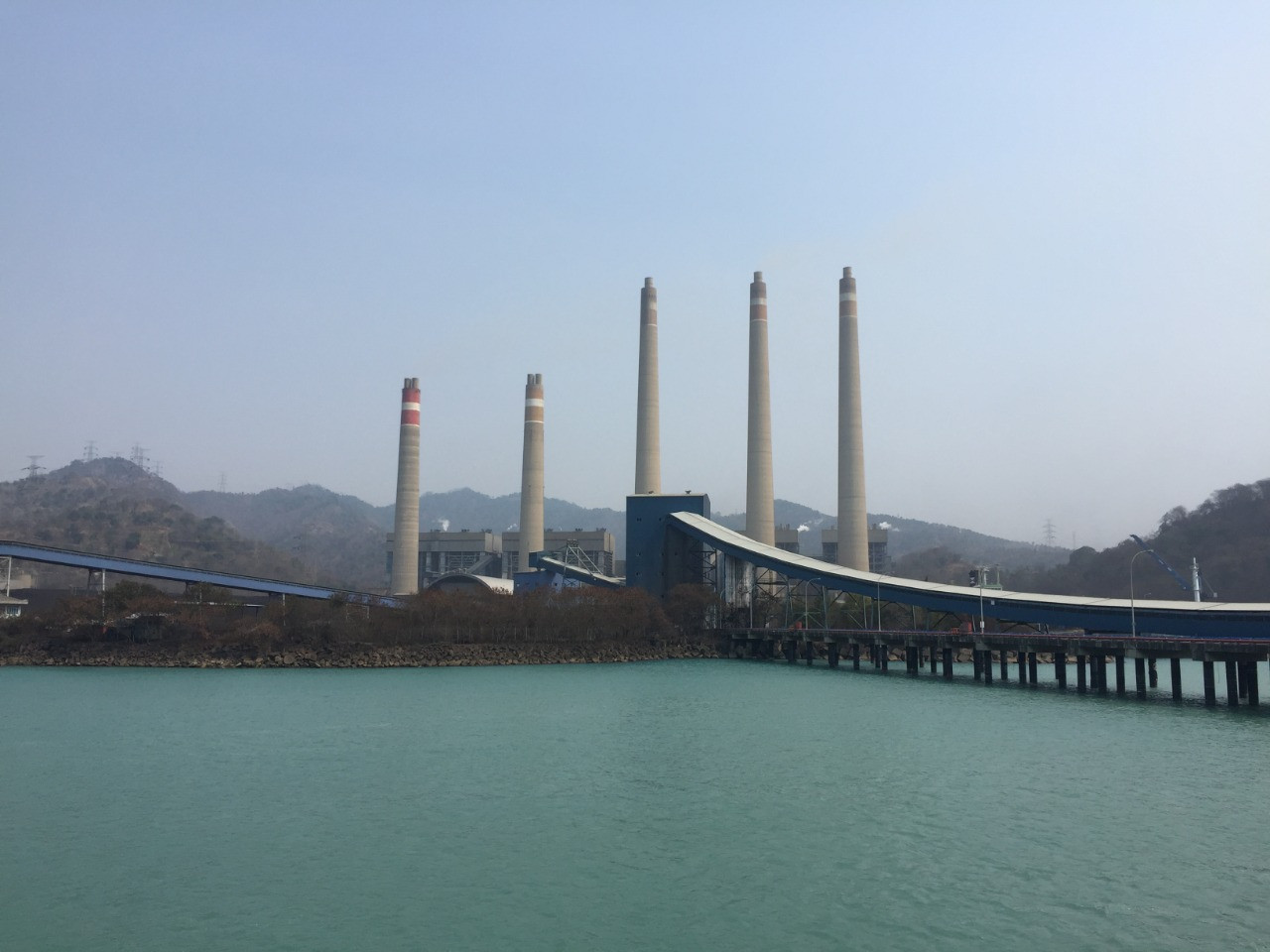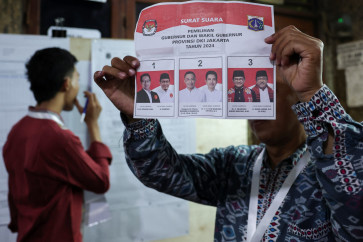Popular Reads
Top Results
Can't find what you're looking for?
View all search resultsPopular Reads
Top Results
Can't find what you're looking for?
View all search resultsBig coal holds lock on energy agenda through opaque lobbying
Change text size
Gift Premium Articles
to Anyone
P
ower plant companies are knee-deep in political influencing and lobbying with little to no transparency, resulting in entrenched coal interests in Indonesia’s energy agenda amid a push for renewables, a recent report by Transparency International Indonesia (TII) has suggested.
TII’s Corporate Political Engagement Index (CPEI) looked into the political transparency of 90 companies involved in the development of coal-fired power plants. These include SOEs, multinationals and publicly listed companies that either invested in, developed or operated the plants.
It measured five categories: how responsible their lobbying was, whether they had a control environment over political engagement, whether they made political donations or had procedures for transparent donations, whether they allowed the revolving door between business and the public sector, and whether information on their political activities was accessible to the public.
Almost all companies have no strict internal policies regulating a control environment, political donations and responsible lobbying, the report said.
“This may seem normal but should not be because Indonesia does not have any regulations about responsible lobbying yet, while other countries already have,” TII researcher Belicia Angelica said on Thursday during the launch of the report.
TII also found that almost all companies allowed the revolving door, or employing former public officials shortly after they left policy-making positions that may help the companies with future lobbying.
The majority of the companies were lacking in transparency to the public, with 66 companies out of 90 either having no publicly available websites or having ones that contained no relevant information about their political activities.
Read also: How coal, renewables have replaced oil in Indonesia’s energy mix
TII analyzed corporate documents published between 2018 and 2020 -- such as annual reports, financial reports and their antigraft policies -- but not all companies have these documents accessible. Other primary data, including from state-owned electricity firm PLN and the government were also hard to access, forcing TII to rely more on data from Global Coal Plant Tracker instead, Belicia said.
“We have also tried to get feedback from the companies, on whether the information that we received was accurate. However, none of them responded,” Belicia said.
TII concluded that overall, 59 out of 90 companies scored 0, on a scale of 0 to 2, with 0 failing to meet the standards in all five assessments -- meaning that they engaged with politics with almost no transparency. This, Belicia said, could create the risk of corruption and conflict of interests in the already graft-prone energy sector.
Read also: Indonesia drops in graft index for first time in Jokowi presidency
Overall, state-owned enterprises tended to have better scores than other companies in the index, although three out of 17 SOEs scored 0. This, Belicia said, was mainly because SOEs tended to have internal rules regarding political donations and activities during election periods.
If all scores in the five categories were aggregated and measured on a scale of 0 to 10, with 0 being the least transparent, the average score of the 90 companies was 0.9.
In the report, TII also looked into how many politically exposed persons (PEPs) -- persons who have or once had positions in policymaking -- took key positions in company structure. It found that 40 out of 90 companies had PEPs sitting on the board of directors and board of commissioners.
Read also: Indonesia misses green energy mix target in 2020
TII secretary-general Danang Widoyoko said that while renewables still had their own set of problems from the lack of incentives to high pricing, the CPEI showed that renewables were hindered by the economic and political interests of coal-fired power plants.
Under President Joko “Jokowi” Widodo, the country’s electrification rate has grown from 84.35 percent in 2014 to 99.2 percent in 2020, according to government data.
However, coal retains the largest share in the country’s primary energy mix and it even grew from 27.9 percent in 2015 to 38.7 percent in 2020. In comparison, renewables grew from 4.4 percent in 2015 to 11.5 percent in 2020.
Commenting on the TII report, economist Faisal Basri said that political lobbying was not wrong, but it should be transparent. “That way, lobbying will be reflected clearly in [company] policies, whether they are in favor of the people or the [lobbying] funders,” he said.
Read also: Mixed reaction as coal ash taken off hazardous waste list
Publish What You Pay Indonesia national coordinator Maryati Abdullah said: “In Indonesia, besides lobbying not being regulated, bribery is also rife.”
She suggested that the government introduce regulations to prevent policymakers from holding key positions in private companies without a cooling off period and that to prevent irresponsible lobbying from the get-go, election organizers should also introduce stricter rules regarding how companies engage in politics during election periods. This would also allow voters to be more informed about how their votes could affect energy policies.










